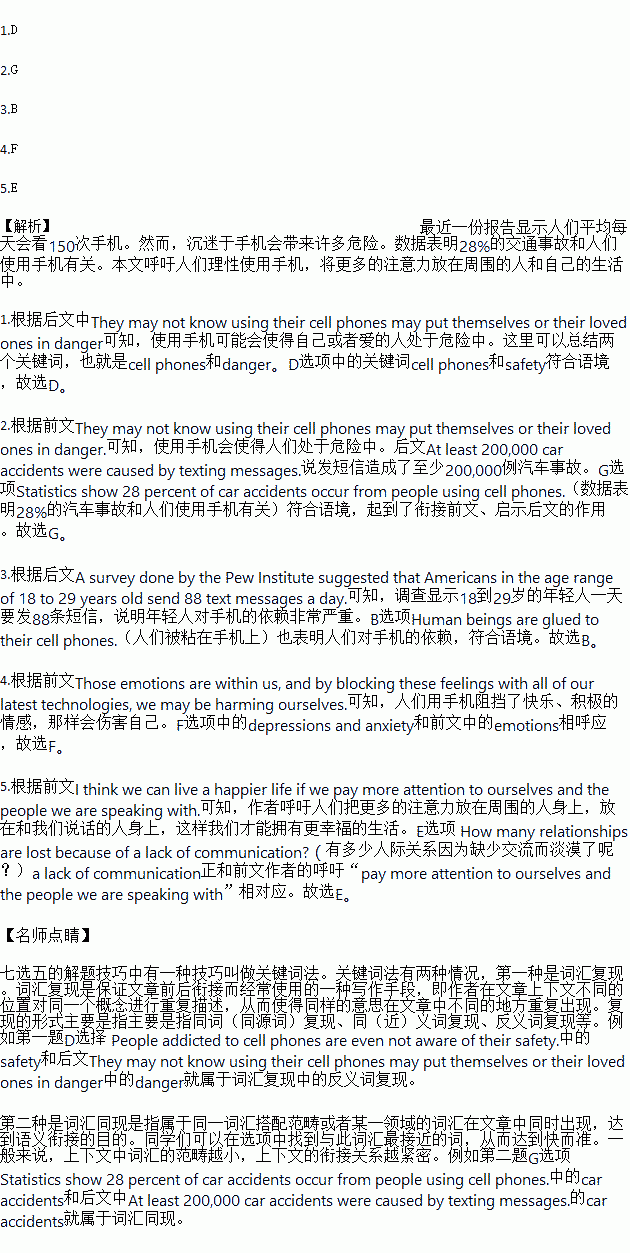题目内容
A recent report suggested that an average person checks his or her cell phone 150 times a day. 1.They may not know using their cell phones may put themselves or their loved ones in danger.2.At least 200,000 car accidents were caused by texting messages.
3.A survey done by the Pew Institute suggested that Americans in the age range of 18 to 29 years old send 88 text messages a day. When you’re walking home from work, you don’t need your head-phones making loud noises in your ears. There is a much greater place to create positive emotions that will make us happier and much more fulfilled. Those emotions are within us, and by blocking these feelings with all of our latest technologies, we may be harming ourselves.4.
We need to take back control of our minds and stop compulsively checking our emails, Facebook updates, and text messages. I think we can live a happier life if we pay more attention to ourselves and the people we are speaking with. 5. Think about what parents are doing to children’s emotional well-being when they focus on their cell phones rather than their children.
If you are playing with your children in the park, be totally attentive to what they are doing. If you are in a business meeting and someone is speaking, listen to everything they say.
A. Your cell phone is not part of your body.
B. Human beings are glued to their cell phones.
C. Cell phones have brought great convenience to us.
D. People addicted to cell phones are even not aware of their safety.
E. How many relationships are lost because of a lack of communication?
F. Using cell phones too much may be linked to depressions and anxiety.
G. Statistics show 28 percent of car accidents occur from people using cell phones.

